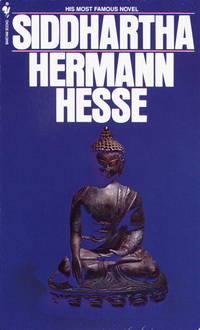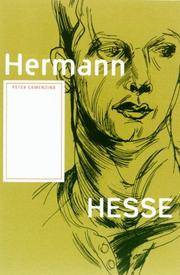His family was deeply religious , his father and grandfather both working at a Christian publishing company. His family were devout Pietists, but from a young age Hesse rejected traditional values of his family's religion and expectation of education. Although he passed the exams to get into a prestigious monastery he avoided enrollment by running away. After this, his parents put him in a mental institution. He loathed the institution and was eventually allowed to leave.
His maternal Grandfather was also religious, and a missionary in India. Hesse's mother spent part of her childhood there, and in 1911 he began to visit the East as well, laying the groundwork for later novels such as
Siddhartha and Journey to the East.
In October 1895 he began to work at a bookshop, and all of his free time was spent with books. After work he wrote and studied theology, Greek mythology and philosophy and the German Romantics. In 1896 his first collection of poetry, Romantic Songs, was published, followed by One Hour After Midnight, in 1898. Neither volume sold. Hesse’s mother disapproved of the content of
Poems. Their relationship was strained, and when she passed away in 1902 Hesse, who was twenty-five at the time, did not attend her funeral.
Hesse continued to write and live a life of artistic self-exploration through reading, travel and contemplation. In 1900 he published Posthumous Writings and Poems of
Hermann Lauscher, and with that book his work began to get noticed, leading to the publication of his first novel,
Peter Camenzind (1904). Ironically, the novel about a failed writer became popular throughout Germany, and allowed Hesse to make a living as a writer.
In 1922 his novel Siddhartha, a poetic novel set in India at the time of Buddha, was published. This novel illustrated his deep appreciation for Indian culture and Buddhist philosophy, and constant search for enlightenment through theology and philosophy, and later psychology.
Steppenwolf was published in 1927 when Hesse was fifty. To the author's dismay it became, and remains today, popular with adolescents, like many of Hesse's other books.
Like the characters in his books, Hesse spent his life both seeking and rejecting the trademarks of normal society. He was married three times, but seemed an unhappy husband and father.
His last full-length novel,
The Glass Bead Game, was begun by Hesse in 1931 and published in Switzerland in 1943 after begin rejected in Germany because of his anti-Fascist views. It revolves around an academy of scholars who are all male and single.
In 1946 Hesse won the Nobel Prize in Literature.
Hesse died on August 9th, 1962, in Switzerland. He was 85 years old.



































